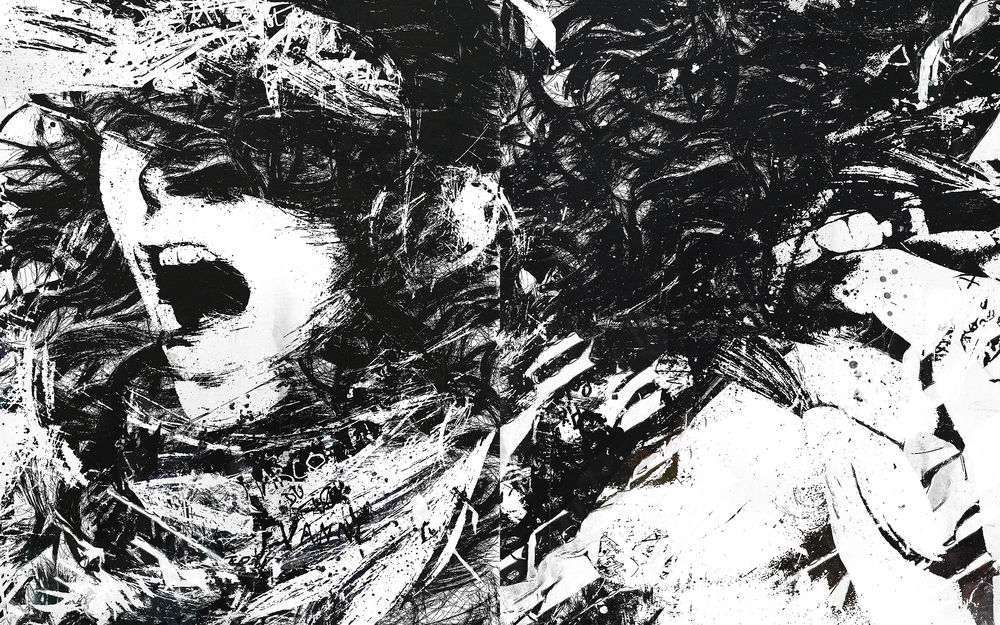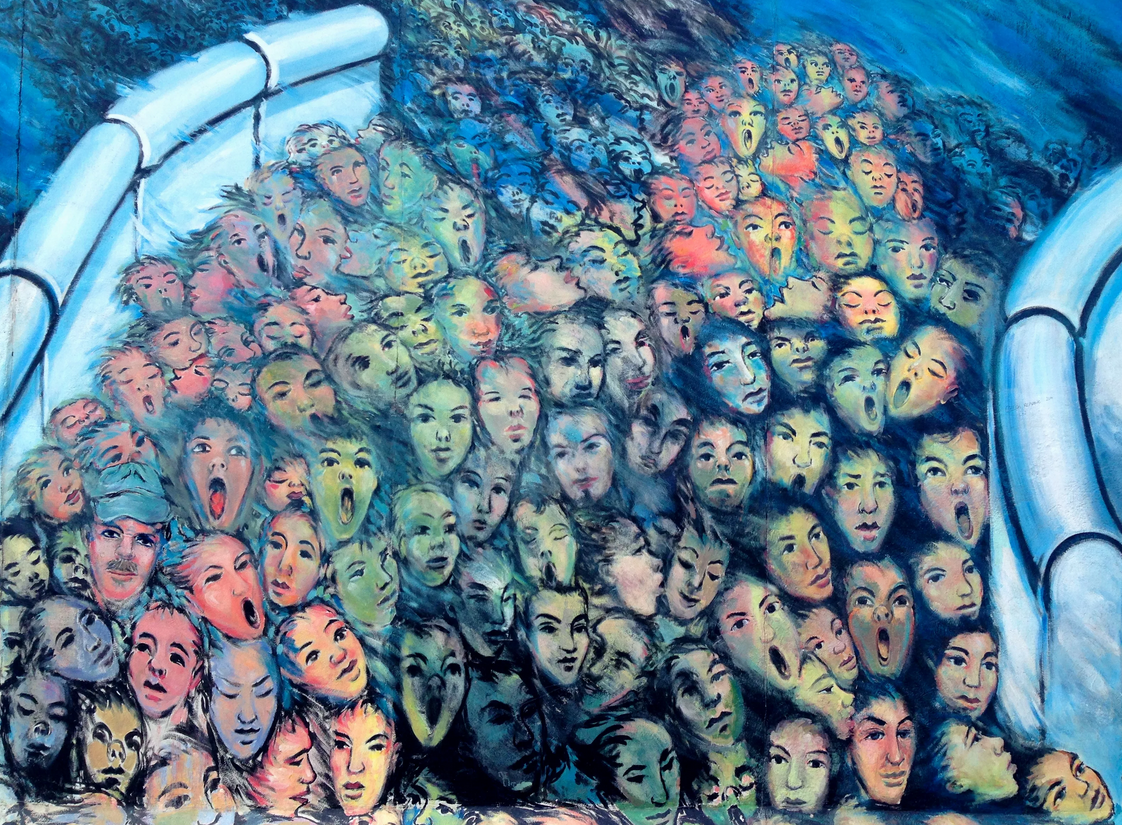Teacher
Professional
- Messages
- 2,669
- Reaction score
- 827
- Points
- 113

The sages of the East worked for over 5000 years and created the doctrine of preserving life, strengthening and increasing their health. "All diseases are from the nerves" - people usually say. Western medicine and Eastern medicine talk about it, doctors and healers talk about it. Is this fair? We will also try to figure it out.
Emotions are a specific type of energy. Energy can carry both positive and negative charges. The presence of an equal number of these charges is called "harmony." Along with joy, there is sadness, sadness; so calmness - anxiety; with fear - courage and faith; with activity - depression; with doubts - determination and action.
Man is a living, feeling, thinking creature, and all emotions are useful for him. Another thing is when this or that emotion is present for a long time or excessively. Then an inner mental confusion and anxiety sets in, which already entails a violation of health. For example, excessive resentment can disrupt the movement of energy (qi) of the liver and the cleansing function of the liver. Then the qi of the liver soars up, the blood follows it, blocking all the openings that serve for purification. This condition is called "fainting".
Why do we need negative emotions?
It is always good to live joyfully and happily. But the outside world and the person himself cannot be in the same state for a long time - this is the law of the Universe. Everything is in constant motion, everything flows, everything changes. The world is changing - the person is changing too. And this is great! As long as his life is filled with feelings, emotions, experiences, he remains a Human. From each such change, we become wiser, we get to know life, people, ourselves. Whatever the situation or condition, they are ours. They are given to us in order to live them, figure them out, draw the right conclusions and move on.
And now about the liver itself - the "queen of emotions".
The liver is one of the largest storage organs (zang - organ) in our body. Paired (like a husband and wife), the liver is located with the gallbladder (fu - organ). The task of the liver is to accumulate and supply the organs with juices, blood, energy (qi). According to the Chinese, the liver controls the eyes, vision, muscle tone, which causes tension or relaxation of the entire muscles, as well as ligaments and nails. The liver is in charge of the quantity and quality of blood, is responsible for the even flow of qi in the body and the balance of emotions.
The liver and gallbladder are associated with the energy of wood and wind, and this is birth, the beginning of development, rapid growth, childhood. Children (from 1 to 10 years old) are curious, restless, restless, very curious. They are interested in everything, they ask a lot of questions. If a child is created normal conditions in the family, then he will grow up curious, generous, open, with great creative abilities. Unfavorable conditions can give rise to stubbornness, cruelty, intolerance, anger.
The liver cannot tolerate pressure. In many cases, neuroses develop only because in infancy and early childhood, the baby was subjected to pressure: moral, from the work load, additional activities (art schools, music schools, dancing, swimming, etc.), from the excessive demands of parents.
The liver loves relaxation and freedom. Everything that grows requires space, only then will the fruits be able to set and ripen. With increased activity of the child, one should not at all calm down (slow down) his nervous system, one should harmonize the liver, help to gain energy and blood, and breathe freely.
The liver is a "dreamer". It determines our vision of life, and the gallbladder is the readiness for conflicts, perseverance and courage in creating plans. An adult "wind constitution" generates many ideas, makes discoveries, is extraordinary in thinking, extravagant. Likes to create, invent, travel a lot and learn. He is a bad businessman. If the liver is excited, the person reacts to everything with irritation, annoyance and anger. It seems to him that he is being squeezed, encroaching on his living space, happiness. His weakness and aggression do not provide an opportunity to be creative in solving life problems. We gain much more space thanks to the desire to develop, following our dreams, needs, doing what we love, creating comfort in the family and a large circle of friends. Anger is a huge amount of chi energy, which needs to be directed into a creative channel. For example, instead of shouting, raising your voice, stamping your feet, breaking dishes, it is more useful to dig a vegetable garden. This is hot anger. Cold anger is much more difficult to cope with because a person does not feel that he is angry, refuses to notice this problem at all. He begins to complain, blame everyone for his sins, seeks to make the world revolve around him, or seeks salvation in alcohol. Alcohol with its pungent taste will dispel the stagnant energy (qi) of the liver and eliminate depression only for a while. Then everything will return with a vengeance. A vicious circle of dependence, helplessness, inability to make a decision and to act develops. Cold anger is much more difficult to cope with because a person does not feel that he is angry, refuses to notice this problem at all. He begins to complain, blame everyone for his sins, seeks to make the world revolve around him, or seeks salvation in alcohol.
Violations in the liver and gallbladder cause not only emotions, but also the regime, nutrition, external factors. Each organ of our body during the day for 2 hours has maximum activity and minimum activity of qi energy. So, the gallbladder and liver from 23.00 - 3.00 have the maximum energy activity in the corresponding meridians, and from 11.00 - 15.00 - the minimum. Given this, it is necessary to give the liver and gallbladder the opportunity to rest at night, accumulate energy and blood (Yang and Yin). Each organ has an outlet on the body. For the liver, such "windows" are the eyes. Therefore, contemplating beauty with our eyes, we calm the liver, and therefore our nervous system. Straining our eyes in front of a computer monitor at night, we waste energy, become agitated and cannot sleep until 3-4 in the morning.
Eating food requires a lot of energy and juices. Late meals do not allow the liver to accumulate enough blood and energy in the morning. This means that the liver will not be able to transfer its energy reserves to the heart, spleen and stomach for work. During the day, we will feel overwhelmed and tired.
The organ of the liver corresponds to a sour taste. If a sour taste is constantly present in the mouth or a person does not tolerate sour, then this indicates an excess of liver energy. In the food cycle (according to the Wu Xing system), sour and cold foods increase the yin in the heart and weaken the yang in the spleen and stomach. The stomach and spleen gradually cool down, stop processing food in full and become ill. Indigestion leads to stagnation and fermentation of food in the intestines and all the ensuing consequences. Sour and cold foods are yoghurts and southern fruits (citrus fruits) - a typical diet for weight loss. Until the age of 30, such a diet can lead to short-term weight loss due to the use of body reserves donated by parents, and after 30 years, the diet rarely brings a lasting effect, since at this age the amount of natural qi in the organs decreases, and "thanks to" the diet, qi is not replenished. Against this background, chronic diseases begin to develop; including osteoporosis.
Wind energy dominates in spring. The wind blows, swaying branches and leaves. During this period, colds occur more often. The wind can be strong and gusty - yang, light and long-lasting - yin. Who among us, having caught a cold at least once, has not experienced headaches, stiff neck muscles and nasal congestion? It could be from a gusty wind, from a long stay in a draft, from the action of an air conditioner (in a car, apartment, office) or on the beach under the hot sun with a gentle breeze.
The points located on the back of the head and neck, lying along the meridian of the gallbladder, are called “wind gates”. Through them, the wind penetrates the meridian and causes a stop in the movement of energy (qi) and the above-described sensations. To protect yourself from the effects of the wind, you just need to put on a scarf. Wind energy is characterized by manifestations in the form of itching, but not very pronounced and not painful; lacrimation, increased blood pressure, headache (migraine), dizziness, loss of consciousness, muscle spasms, decreased muscle tone. The liver nourishes the ligaments and tendons, and the muscles contract due to good nutrition, blood supply to the ligaments, fascia.
The ligamentous apparatus of the eye is responsible for the function of accommodation and movement of the eyeballs. If the liver is abnormal, various eye diseases develop. Lack of blood in the liver is manifested by "night blindness" (decreased twilight vision) causes muscle cramps, brittle nails and lack of shine.
Doctor of Academic and Traditional Chinese Medicine, Ermakova Natalia Viktorovna



